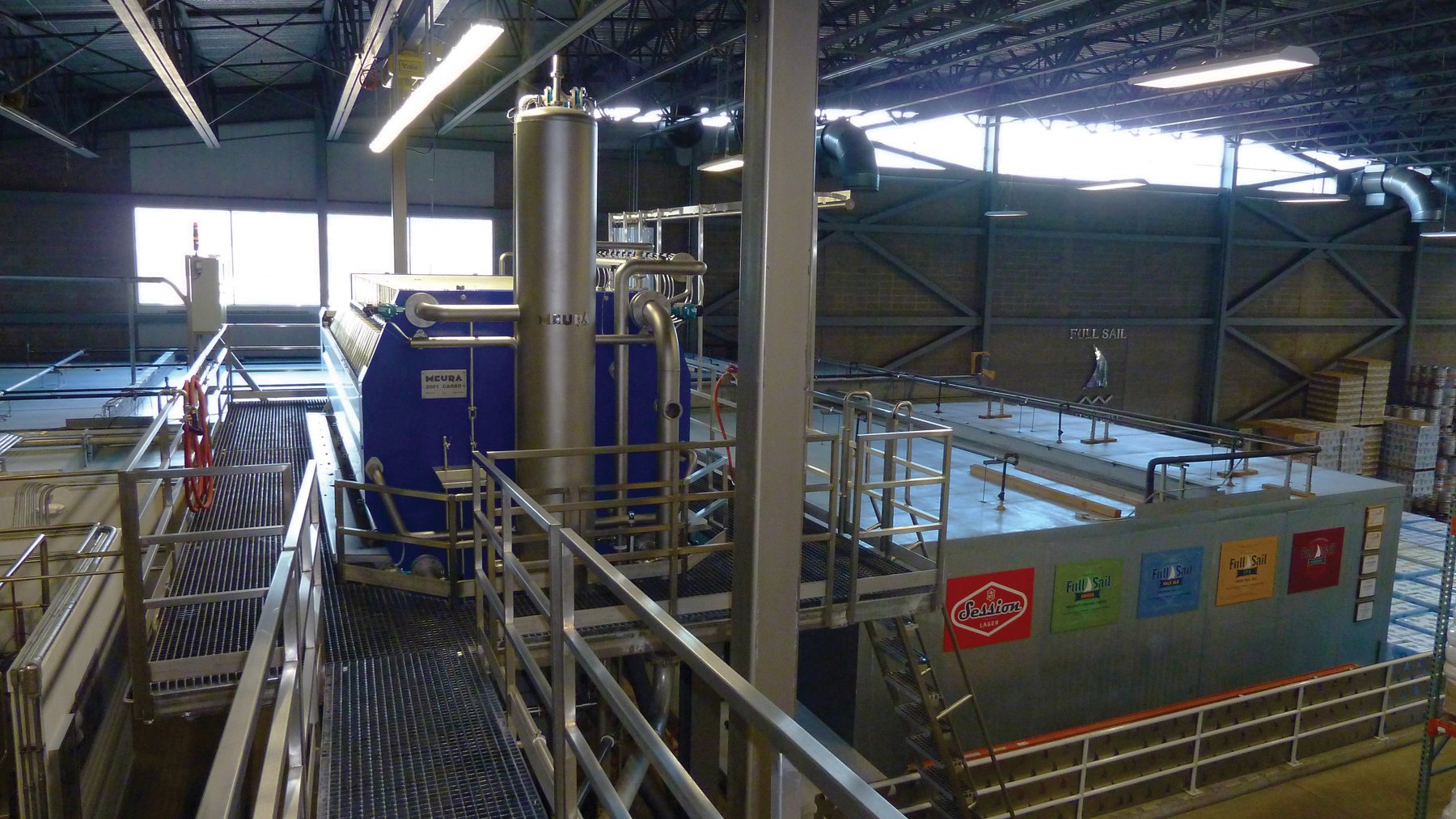Solutions
To achieve these goals, Full Sail decided to upgrade its traditional, manual lauter tun to a fully automated, networked mash filtration system.
Full Sail brought in Aurora Industrial Automation out of Portland, Ore. to design and implement the new system. An Information Solution Provider within the Rockwell Automation® PartnerNetwork™ program, Aurora implemented a control and information solution that would enable Full Sail to apply a manufacturing intelligence strategy across its operations.
The new mash filtration system leverages the PlantPAx™ Process Automation System from Rockwell Automation. As part of the PlantPAx system, Aurora incorporated the PlantPAx Logix Batch and Sequence Manager (LBSM).
LBSM is compliant with the ISA-S88 set of standards and terminology for batch control. The system allows Full Sail to configure sequences directly into the Allen-Bradley® ControlLogix® controller through the FactoryTalk® View human-machine interface software without the need for a server-based batch software application.
If at any point batch requirements grow, Full Sail can easily migrate the LBSM into a comprehensive software solution, like FactoryTalk Batch, without costly re-engineering and testing.
To gain insight into the new system, Aurora implemented a manufacturing intelligence strategy based on FactoryTalk software from Rockwell Automation.
Through an EtherNet/IP network, FactoryTalk Historian identifies and gathers data tags directly from the PlantPAx system for real-time, granular production data. With more than 60 steps in the filtration process, the mash filter produces copious amounts of data.
With the old system, Full Sail was only grabbing four to five data points from each brew in the lauter tun. The new mash filter – enabled with FactoryTalk software – can now pull up to 250 data tags.
Full Sail then uses FactoryTalk VantagePoint software to aggregate this data goldmine into predetermined dashboards. The dashboards provide role-appropriate, real-time key performance indicators – manufacturing intelligence – Full Sail can use to improve operations.
Results
Moving to an information-enabled, automated mash process immediately produced results.
Real-time data is now retrievable over variable time spans, helps achieve optimum functionality of the system and catches discrepancies or problems that may have occurred during a batch.
Reporting and dashboard software can immediately draw from the new historian as well as legacy systems to create a virtual, homogeneous data source for reporting.
Information from single specialty batches to larger trends can be immediately accessed to guide future brews. If a brew were to experience a serious problem, the exact metrics for that brew could be traced and analyzed.
“We make about 20 varieties of beer,” said James Emmerson, Full Sail executive brewmaster. “Now brewers of each batch benefit from the information available from the previous brew, whether a variety was brewed yesterday or last year. The brewers can now go back and see the exact metrics that produced a successful batch and optimize the new brew based on that information.”
With the new PlantPAx system, brewing capacity has increased by 25 percent, plus the time of each brew cycle has been cut by almost half. The visibility operators now have into their brew process allows them to optimize ongoing brews in real time. Full Sail has already used this insight to cut raw material costs by five percent annually.
The company has been able to remove signifi cantly more moisture from the spent barley grain and the byproduct is now sold at a profit.
Additionally, Full Sail estimates it will decrease water use by one million gallons annually helping to augment its sustainability goals.
A million gallons of water will not be paid for, piped, pumped, heated and cooled in the new system. The environmental effect of not using the water in the first place is invaluable.

